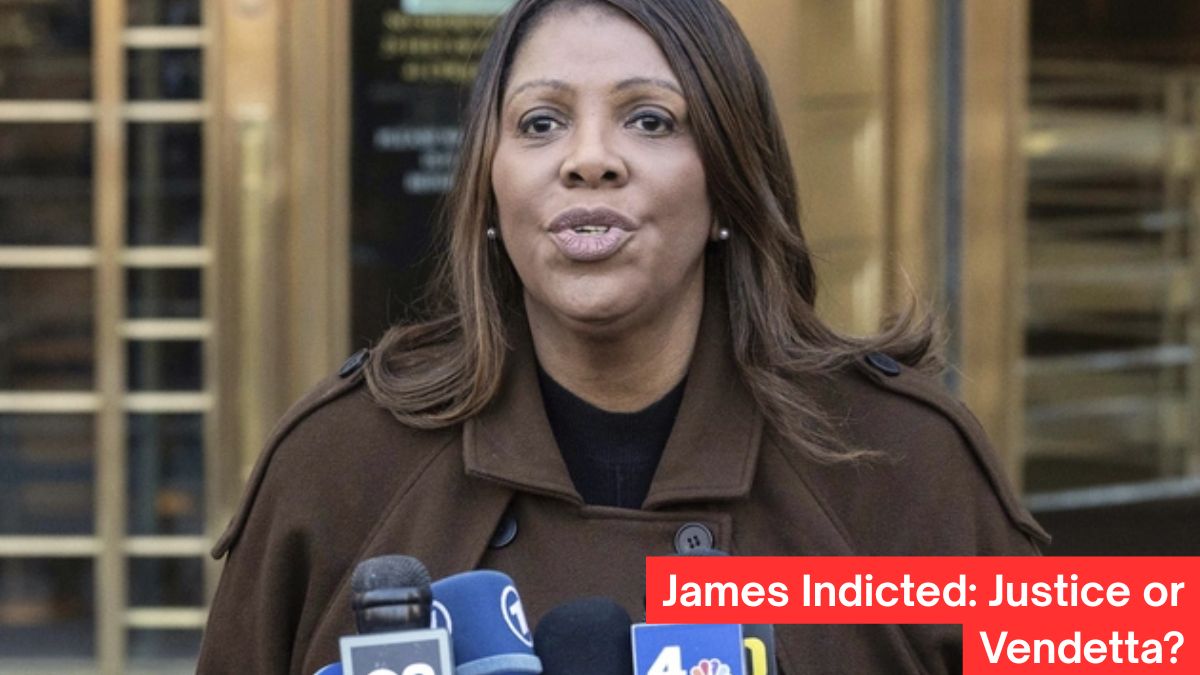On October 9, 2025, New York Attorney General Letitia James was indicted by a federal grand jury in Virginia on charges of false statement and bank fraud.
James, a well-known and vehement opponent of President Donald Trump, is currently facing legal and political repercussions. Is this a case of just accountability, or is it a vindictive action masquerading as justice?
Key Takeaways
- James faces two felony counts tied to a 2023 mortgage in Norfolk, Virginia, with alleged misrepresentations saving her about $19,000.
- She could face up to 30 years in prison per count and $1 million in fines.
- The timeline echoes her earlier civil suit against Trump, fueling accusations of weaponized justice.
- The U.S. Attorney’s Office in Virginia previously resisted charging her; that prosecutor was later removed under pressure.
- Public reaction is sharply divided, with strong voices on both sides.
The Indictment Explained
The official charges say that James used a Norfolk property as a second home to get better mortgage rates while also allegedly using it to make money by renting it out.
She is said to have put her father down as her “husband” on one application. Prosecutors say that these lies cost the state about $19,000.
If James is found guilty, he could face the full range of legal penalties, including 30 years in prison for each count, $1 million in fines, and losing his property.
It’s important to note that the indictment doesn’t prove guilt. James’ lawyer says that the differences are “mistakes, not fraud” in her defense.
Why Timing and Context Matter
This case is similar to James’s earlier fight with Trump. In 2022, her office won a civil fraud case against him, but part of that decision was overturned on appeal.
Critics say that her indictment is retaliation now that the DOJ is led by Trump. James herself called the process “weaponized justice,” saying that she is being punished for doing her job.
A major twist: the U.S. Attorney in Virginia who first said they wouldn’t charge James because the evidence was weak was forced to leave. Lindsey Halligan, who took over for him, personally brought the case to the grand jury.
Reaction Across the Spectrum
There was a lot of activity on social media. James was mentioned more than 500,000 times in 24 hours, a 1,200% rise.
75% of people who are against James use memes, slogans like “LOCK HER UP,” and claims of poetic justice.
Pro-James voices (20%): Supporters said she was the victim of political and racial bias. Hashtags like #StandWithTish became popular.
Neutral voices (5%): People who were watching questioned the strength of the evidence and warned against politicized prosecutions.
Many Democrats spoke out against the move politically. Senate Minority Leader Chuck Schumer called it “tyranny.” Some people said that this case sets a dangerous precedent: using the DOJ to get back at people.
What’s at Stake Beyond James
This case looks at how far the Justice Department can go when going after political enemies. If it works, it could make it easier for critics to be prosecuted in the future.
| Aspect | What It Means |
|---|---|
| Legal Risk | 30 years per charge, plus fines and forfeiture. |
| Political Impact | Erodes trust in DOJ independence and sparks constitutional debate. |
| Public Perception | Seeded deeper polarization and distrust in law enforcement. |
| James’ Strategy | Fight the charges while refusing to step down until court issues. |
What to Watch Next
- October 24: The media will pay a lot of attention to her first court appearance.
- Getting the Defense Ready: James will likely focus on the political motive rather than the criminal behavior.
- DOJ’s Path: Their next steps in similar cases, like Adam Schiff’s, might help us see patterns.
- Public Opinion: The mix of anger and support could have a bigger effect on politics.
This indictment has turned a legal issue into a cultural flashpoint. The lives of people, institutions, and the future of prosecutorial norms are all at stake.







